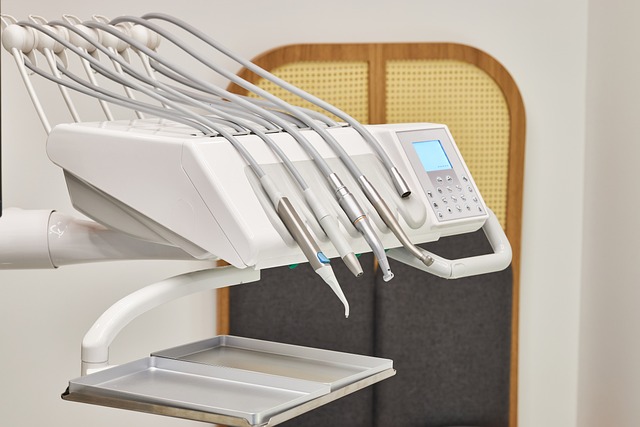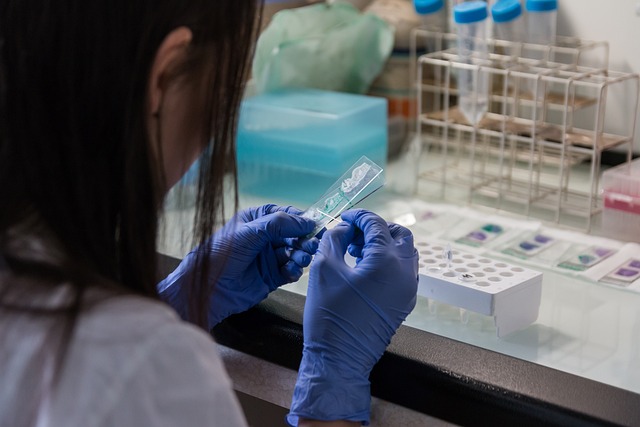In the realm of cutting-edge biomedical research, stem cells have emerged as extraordinary entities with immense potential. These remarkable cells possess the remarkable ability to transform into various specialized cell types, holding promise for regenerative medicine and the treatment of numerous debilitating conditions.
Harnessing the power of stem cells, scientists have ventured into innovative avenues, including the development of stem cell supplements. With their ability to support the body’s natural healing processes, stem cell supplements have become a captivating frontier in health and wellness.
In this article, we will delve into the captivating world of supplements, exploring their potential benefits, mechanisms of action, and the latest advancements in this rapidly evolving field. So, brace yourself!!!
Working of Stem Cells Supplement?
The working of supplements is a complex and fascinating process that involves multiple mechanisms to potentially support the body’s regenerative abilities. Here are some unique and latest insights:
- Stem Cell Activation and Mobilization
Such supplements often contain bioactive compounds that can stimulate the activation and mobilization of existing stem cells within the body. These compounds may include natural growth factors, peptides, or plant-based extracts that have been shown to have stem cell-modulating properties.
By awakening dormant stem cells and encouraging their movement to areas of need, these supplements aim to enhance the body’s regenerative capacity.
- Paracrine Signaling and Trophic Factors
Stem cells are known to release a range of bioactive molecules, including growth factors, cytokines, and chemokines, which exert beneficial effects on surrounding cells and tissues. Stem supplements may contain ingredients that mimic or enhance this paracrine signaling.
By providing a concentrated source of these trophic factors, the supplements aim to create a favorable microenvironment for tissue repair, regeneration, and immune modulation.
· Anti-Inflammatory Effects
Chronic inflammation can hinder the body’s natural healing processes. Stem supplements may include compounds with potent anti-inflammatory properties, such as polyphenols, omega-3 fatty acids, or antioxidants. By reducing inflammation, these supplements can create an environment conducive to tissue repair and regeneration.

· Cellular Protection and DNA Repair
Stem supplements may contain ingredients that protect and repair cellular DNA from damage caused by oxidative stress, environmental factors, or aging. These supplements may include antioxidants, phytochemicals, or other compounds known for their DNA-protective properties. By preserving cellular integrity and supporting DNA repair mechanisms, such supplements aim to promote cellular health and longevity.
· Modulation of Microenvironment
Stem supplements may help modulate the local microenvironment within tissues, creating a favorable milieu for tissue regeneration. They may influence factors such as oxygen levels, pH balance, and the secretion of extracellular matrix components. By optimizing the cellular environment, these supplements aim to promote tissue repair and regeneration processes.
It is important to note that the specific mechanisms of action may vary depending on the formulation and ingredients of each stem supplement. Further research is needed to fully elucidate the working of such supplements and their impact on various tissues and systems within the body.
Is Stem Cells Supplement really important?
The importance of stem supplements lies in their potential to enhance the body’s natural regenerative abilities and support overall health and well-being. However, with age, and certain health challenges, the number and functionality of our own cells may decline. This decline can have a significant impact on our body’s ability to recover from injuries, fight off diseases, and maintain optimal vitality.
Stem cell supplements aim to provide a boost to our body’s own stem cell production and function. By replenishing and activating cells, these supplements may help promote tissue repair, enhance immune function, improve cognitive health, and potentially slow down the aging process. While further research is needed to fully understand the long-term effects and efficacy of stem supplements.
Benefits of Stem Cells Supplement?
The benefits of stem supplements are a subject of ongoing research and exploration, but current findings highlight several potential advantages that make them an intriguing area of interest.
- Stem supplements may support the body’s natural ability to repair and regenerate tissues.
- Stem supplements have shown promise in supporting joint and musculoskeletal health. They may help reduce inflammation, enhance cartilage production, and improve overall joint function.
- Stem supplements may help enhance immune function by supporting the production and activation of immune cells.
- Stem supplements have garnered attention for their potential anti-aging They may help combat age-related cellular deterioration and promote tissue rejuvenation.
- Stem supplements may contribute to neurological health by promoting the growth and regeneration of neurons, potentially benefiting individuals with neurodegenerative disorders or those seeking cognitive enhancement.
It’s important to note that it is advisable to consult with a healthcare professional before including them in your routine.

Drawbacks of Stem Cells Supplement?
While stem supplements hold promise in various areas of health and wellness, it’s important to consider the potential drawbacks and limitations associated with their use. Here are some unique and updated points to be aware of:
- The stem cell supplement industry is still relatively young and lacks comprehensive regulation. This can lead to variations in product quality, efficacy, and safety.
- More rigorous research, including large-scale clinical trials, is needed to fully evaluate the benefits and potential risks associated with these supplements.
- These supplements, like any other dietary supplement, may have side effects or interact with other medications or health conditions. For example, some supplements may induce an immune response or cause allergic reactions.
- Some stem supplements may claim to contain embryonic or fetal stem cells, which can be a controversial and ethically sensitive area.
- Stem supplements can be costly, and the financial burden may be a limiting factor for some individuals. Additionally, accessibility to reliable and high-quality stem cell supplements may vary depending on geographical location.
While stem cell supplements offer potential benefits, it is crucial to weigh the drawbacks and limitations associated with their use.
False and misleading ‘stem cell’ claims assembled on supplements
Unfortunately, false and misleading claims regarding “stem supplements” have become prevalent in the market. These claims often exploit the promising field of stem cell research and mislead consumers with inaccurate information. It is essential to be aware of such deceptive marketing tactics and understand the following points:
- Many supplements claim to contain live or active stem cells, suggesting that consuming these products will directly introduce new stem cells into the body. However, the reality is that genuine stem cells cannot survive in a supplement form outside of a controlled laboratory environment.
- Some supplements assert that they can activate or awaken dormant stem cells within the body. While certain ingredients may have the potential to influence cellular processes, the extent to which they can activate endogenous stem cells is still under investigation. The complex mechanisms involved in stem cell activation require further scientific exploration.

- Stem supplements are often marketed as miracle cures for various conditions, ranging from chronic illnesses to degenerative diseases. However, the vast majority of these claims lack substantial scientific evidence or regulatory approval. It is important to consult healthcare professionals for evidence-based treatment options.
- Some supplements claim to derive their stem cells from controversial or ethically questionable sources, such as embryonic or fetal tissue.
- The regulation of stem supplements varies across jurisdictions. In many cases, these supplements fall under the category of dietary supplements, which are subject to less stringent regulations compared to drugs or medical treatments. This lack of comprehensive regulation can result in unsubstantiated claims and inconsistent product quality.
To make informed decisions, consumers should rely on credible sources of information, such as reputable scientific studies, healthcare professionals, and regulatory bodies. By staying vigilant and informed, individuals can protect themselves from falling victim to false and misleading claims surrounding stem supplements.
What is therapeutic cloning and benefit does it offer?
Therapeutic cloning, also known as somatic cell nuclear transfer (SCNT), is a cutting-edge biotechnological process with immense potential in the field of regenerative medicine. It involves the creation of embryonic stem cells that are genetically identical to the patient’s own cells, thereby minimizing the risk of rejection.
Stem cell therapy companies are actively exploring the applications of therapeutic cloning in addressing various medical conditions, including neck pain and hip arthritis.
In the context of stem cell therapy for neck pain, therapeutic cloning could offer significant benefits. By utilizing a patient’s own cells, therapeutic cloning can generate embryonic stem cells that have the potential to differentiate into various specialized cell types. These cells can then be directed to develop into specific tissues, such as intervertebral discs or spinal cord cells.
However, it is important to note that therapeutic cloning and its potential benefits are still in the early stages of research and development. A collaboration between stem cell therapy companies and scientists, and advancements in biotechnology will be necessary to fully understand the potential benefits and address the ethical, legal, and social implications associated with therapeutic cloning in the context of stem cell therapy.
Which Supplements Support Stem Cell Health?
When it comes to supporting stem cell health, several supplements have shown the potential in promoting the production and functionality of stem cells. Among these supplements, Spirulina, Quercetin, and Astragalus Root have been identified as beneficial for stem cell production.
Spirulina, blue-green algae, is rich in nutrients and antioxidants that may help enhance the body’s natural production of stem cells. Quercetin, a flavonoid found in various fruits and vegetables, has been shown to stimulate the proliferation and differentiation of stem cells. Astragalus Root, an herb commonly used in traditional Chinese medicine, is believed to possess properties that can promote stem cell renewal and regeneration.

Additionally, several other supplements have been suggested to support stem cell health. These include resveratrol, curcumin, EGCG (found in green tea), genistein, daidzein, caffeic acid, chlorogenic acid, kaempferol, and piceatannol. These compounds exhibit antioxidant and anti-inflammatory properties that may help maintain the integrity and functionality of stem cells.
In certain cases, such as Lupus stem cell therapy, the focus may be on specific therapeutic approaches like using stem cells or exosomes. Exosomes, although not stem cells themselves, are tiny vesicles secreted by stem cells that play a role in cell-to-cell communication and can influence the behavior of other cells.
Ultimately, when considering supplements and stem cell-based therapies, it is crucial to work closely with healthcare professionals to determine the most appropriate and effective treatment options based on your unique circumstances.
Conclusion
In conclusion, Stem Supplements hold promise in supporting the body’s regenerative abilities and promoting overall health. These supplements work by potentially enhancing stem cell activation and mobilization, providing trophic factors for tissue repair, and modulating the cellular microenvironment.
However, it is important to be conscious of the potential drawbacks. As with any health supplement, it is essential to prioritize safety and consult with healthcare professionals. Further research is needed to fully understand the efficacy and long-term effects of these supplements.
